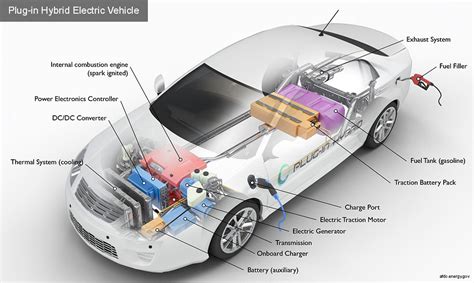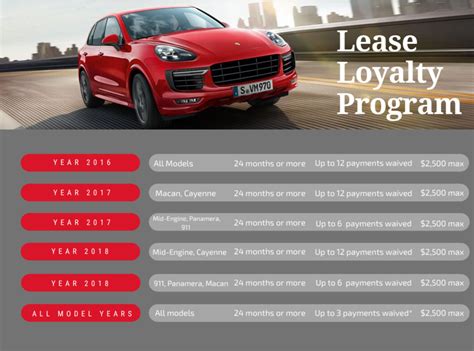Hybrids cars are becoming more and more popular these days as they offer better fuel-efficiency, lower emissions, and other environmental benefits. Hybrid cars are powered by both an internal combustion engine and an electric motor, and use a combination of both gasoline and electricity to power the car.
However, despite the many advantages of hybrid cars, there are some potential downsides that should be considered before making a purchase. For starters, a hybrid car typically costs more than a traditional gasoline-powered vehicle. This is due to the additional technology that is needed to power the vehicle. Additionally, the cost of the batteries used in a hybrid car can be higher than the cost of traditional gasoline.
Another potential downside of a hybrid car is the limited range. The range of a hybrid car is usually much shorter than that of a traditional gasoline-powered vehicle. This can be a problem for those who have to travel long distances on a regular basis, as they may need to recharge the car’s battery frequently.
Another issue to consider is the lack of availability of replacements parts. Since hybrid cars are relatively new technology, it can be difficult to find replacement parts if something goes wrong. This can mean a costly trip to the mechanic to get the necessary repairs.
Finally, hybrid cars can be more difficult to maintain than traditional gasoline-powered vehicles. This is due to the additional technology that is needed to power the car, which can be more complicated to maintain. Additionally, hybrid cars may require more frequent maintenance and service than traditional gasoline-powered vehicles.
Overall, hybrid cars offer many benefits, including better fuel efficiency, lower emissions, and environmental benefits. However, there are some potential downsides that should be considered before making a purchase, such as the higher cost, limited range, lack of availability of replacement parts, and difficulty maintaining the vehicle.
The Pros And Cons Of Driving A Hybrid Car
Hybrid cars are becoming increasingly popular as people look to reduce their environmental impact. These cars combine a gasoline engine and an electric motor, providing greater fuel efficiency than a regular gasoline engine. But as with any car, there are pros and cons to driving a hybrid car. Read on to learn more about the advantages and disadvantages of hybrid cars.
The primary benefit of a hybrid car is improved fuel efficiency. Hybrid cars typically get better gas mileage than traditional gasoline-powered cars, and some even offer all-electric driving capabilities. On average, a hybrid car can get up to 40 mpg, while the average gasoline-powered car only gets about 27 mpg. This makes hybrid cars a great choice for people who want to reduce their fuel costs.
Hybrid cars also offer environmental benefits. By using less fuel, hybrid cars reduce the amount of emissions released into the atmosphere. This helps reduce air pollution and helps protect the environment.
Finally, hybrid cars tend to be more reliable than traditional gasoline-powered cars. Hybrid cars have fewer moving parts, which makes them less likely to break down. This can save you a lot of money in the long run.
One of the main drawbacks of hybrid cars is the higher cost. Hybrid cars are more expensive than traditional gasoline-powered cars, and they may not be worth the extra cost if you don’t plan on keeping the car for a long time. Additionally, hybrid cars generally only offer limited space, so they may not be the best choice for families.
Another disadvantage of hybrid cars is the lack of charging infrastructure. While hybrid cars can be plugged in to charge, there are still few public charging stations available. This means that if you need to charge your car away from home, you may have to go out of your way to find a charging station.
Finally, hybrid cars can be complicated. They require more maintenance than traditional gasoline-powered cars, and they may require specialized parts that can be hard to find. Additionally, if something goes wrong with your hybrid car, it can be difficult to find a mechanic who is familiar with the technology.
Overall, hybrid cars offer many benefits, from improved fuel efficiency to environmental benefits. However, they also have their drawbacks, such as the higher cost and lack of charging infrastructure. Before you buy a hybrid car, it’s important to consider all the pros and cons to decide if it’s the right choice for you.
Understanding The Benefits And Challenges Of Owning A Hybrid Vehicle
Hybrid cars are becoming increasingly popular with drivers. They offer many advantages, including lower fuel costs and emissions, but they also present some challenges. Understanding the benefits and challenges of owning a hybrid vehicle is important before making a purchase.
Hybrid cars have two power sources – one powered by gasoline and one powered by electricity. When the car is at a stop, the electric motor cuts in, allowing it to use less fuel. This can result in significant fuel savings, as well as lower emissions. Some hybrid vehicles even have an electric-only mode that can be used for short trips, such as commuting to work or running errands. In addition to being fuel-efficient, hybrid vehicles often have additional features such as better acceleration and handling.
However, hybrid cars come with some drawbacks as well. The upfront cost of a hybrid vehicle can be more expensive than a comparable gasoline-powered car. Additionally, hybrid vehicles often require more maintenance due to the additional components. The batteries in a hybrid vehicle can also be expensive to replace.
Additionally, the cost of fuel for a hybrid vehicle can be more expensive than for a comparable gasoline-powered vehicle. This is because gasoline prices are typically lower than electricity prices. Furthermore, some states charge an extra tax on hybrid vehicles.
When considering the purchase of a hybrid vehicle, it is important to weigh the benefits and challenges to determine if the vehicle is right for you. The table below outlines some of the pros and cons of owning a hybrid vehicle.
| Benefits | Challenges |
|---|---|
| Lower Fuel Costs | Higher Upfront Cost |
| Lower Emissions | Higher Maintenance Costs |
| Additional Features | Expensive Battery Replacement |
| Electric-Only Mode | More Expensive Fuel |
Understanding the benefits and challenges of owning a hybrid vehicle is essential before making a purchase. Hybrid vehicles can be a great choice for those who are looking to save money on fuel costs and reduce emissions, but they also come with some drawbacks. Make sure to take the time to research and consider all of the pros and cons before making your decision.
A hybrid car may have a lower fuel efficiency than a regular petrol or diesel car.
Some common issues with hybrid cars include a higher cost, a limited driving range, and a smaller choice of models.
Hybrid cars can be more expensive than regular cars since they include a hybrid engine system.
Hybrid cars are generally reliable, although some parts may need to be replaced more frequently than in regular cars.
The most fuel efficient hybrid car models are usually the smallest and lightest ones.
Yes, a hybrid car needs regular maintenance just like any other car.
No, a hybrid car can use regular petrol or diesel fuel.
The battery in a hybrid car usually lasts around eight years.
No, hybrid cars are typically quiet since the electrical motor runs more quietly than a petrol or diesel engine.
Yes, hybrid cars still produce emissions, although they are typically lower than regular petrol or diesel cars.






